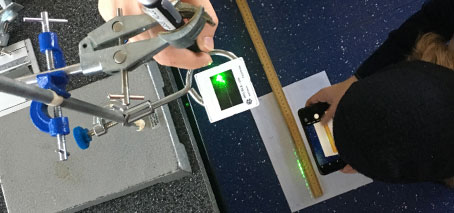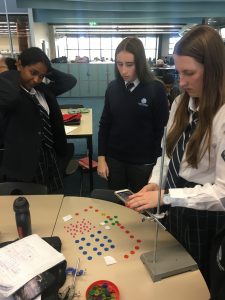
Seeing female speakers from FLEET inspired girls to consider physics, ‘because I could see now there’s a place for females in this field’. Here, students animate diode action, following Elena Ostrovskaya’s semiconductor lesson.
Surveying and student interviews confirms success of future computing unit in encouraging girls/other students in physics
Over the last three years FLEET has helped put ninety Year 10 students through a ‘Future electronics’ unit, in partnership with John Monash Science School (JMSS).
As well as covering semiconductors, Moore’s Law and computing, the course introduces quantum physics at an intuitive level (with minimal maths) and expands on this fundamental understanding to explain complex, useful quantum states such as superfluids and topological materials.
Surveys confirm that students have enjoyed and been engaged in the topics covered. And that despite a lot of students finding some topics difficult, this did not detract from their enjoyment and interest in the unit.
“In addition to students finding the unit interesting and enjoyable, crucially the unit revealed a breadth and depth to the discipline of physics that students were unaware of,” says FLEET outreach coordinator Jason Major. “Meeting FLEET researchers made physics real, palpable and inclusive for students, who got immense value from researchers’ raw, unfiltered stories about their research and its application to real-world problems.”
The FLEET-JMSS unit affected students’ consideration of physics as a subject in the future, with many students who had not considered physics saying the unit may have changed their minds. For the students already planning to do physics, the unit helped reinforce that decision: “I had been tossing up doing physics in VCE over the last couple of weeks and this is kind of sealing the deal for me.”
FLEET members helped to develop and deliver the courses, exposing students to a much more diverse cast of physicists than the ‘pale, stale and male’ 19th-century gentlemen whose names and biographies are traditionally taught in physics classes.
In addition, the presence of female presenters allowed students to see a place for themselves in physics:
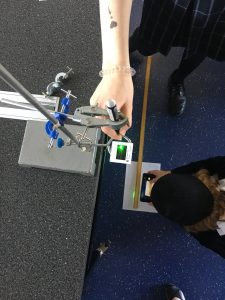
Hands-on learning: Students doing Young’s 2-slit experiment, measuring band-spacing to calculate wavelength
“At my old school, subjects like psychology, physics, biology were more male-dominated subjects, and [it felt like] females shouldn’t be in those subjects. Seeing the female speakers from FLEET inspired me to consider physics, just because I could see now there’s a place for females in this field.”
Surveying and interviews confirm that the involvement of FLEET researchers played a crucial role in student enjoyment and engagement, making physics real, palpable and inclusive. This engagement enabled students to envision multiple opportunities in physics, opening doors to consider new, varied career paths.
FLEET presenters exposed students to the breadth of opportunity within physics, and engaged students in their area of research and its real-world applications, helping students realize the value and purpose of physics. “There are many components and jobs which compose this field and it really opened my eyes to the many possible job careers.” “Meeting the researchers showed me a career that I could pursue, and after doing this topic I gained a lot of interest in it.”
“Our teachers at JMSS have a lot of expertise in these areas already, but having someone who is currently doing research on this topic gives a deeper insight. It feels like what we’re learning is unfiltered.”
Within the overriding structure of putting FLEET science into context, content taught covered the spectrum from fundamental atomic and quantum physics to applied computing and technology, including:
- An atomic understanding of electrical conduction
- Function and construction of transistors, and their use in increasingly-complex Boolean logic circuits
- The role of binary numbers in digital computing
- Quantum science, including wave-particle duality and uncertainty
- Superfluids and excitons
- Topology and topological materials
- Ultra-cold atomic physics
- Quantum computing (with the help of the Australian Research Council Centre of Excellence for Quantum Computation and Communication Technology, CQC2T)
- Graphene and other two-dimensional (2D) materials.
This diversity of topics meant that most student were able to find at least a few topic they were really interested in: “It was interesting to cover so many topics not normally talked about in normal classes. I liked the variety of topics we studied, as we learned a small amount of interesting information about each topic.” Between 80% and 100% of students found the topics interesting, and between 80 and 97% found the topics enjoyable.
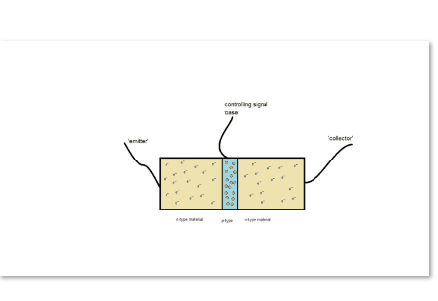
From subatomic particles to the ‘big picture’: The flow of learning built up an understanding from atomic theory top construction and function of a semiconductor transistor, to the logic circuits of binary computers
The unifying connection of seeking low-energy electronics illustrated for students that fundamental research could work towards a ‘real world’ application:
“Even though FLEET’s research is quite complicated and the field is pretty new, concepts like cold atoms that might seem unrelated to electronics actually play a key role in developing low energy technology in the future.” “These were real-life scenarios: how physics is studied in university, and how the concept is applied.”
Centre lab researchers have also delivered both in-lab and virtual (webcam) lab tours of FLEET facilities at Monash, UNSW, and Swinburne.
The future computing unit will be repeated in 2022. In the next 12 months, more female students will be interviewed to gain a clearer picture of what is happening here.
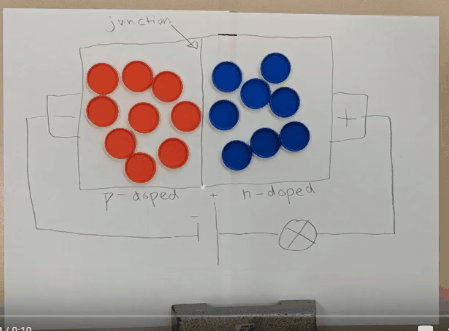
Students have embraced sci-comms challenges to explain the complex science they were learning: Here, a stop-motion animation demonstrates the function of a semiconductor diode

Lessons by zoom kept learning alive in 2020-21: Mechanical switches, glass valves, transistor radio and breadboard are laid out on a FLEET member’s bed, ready to be used as props for a zoom class on transistors

